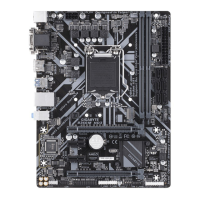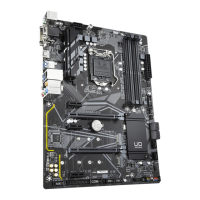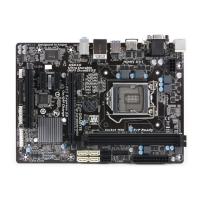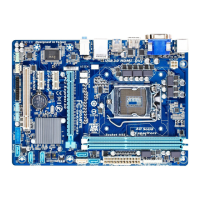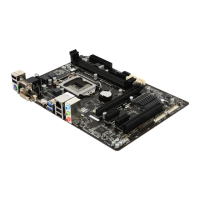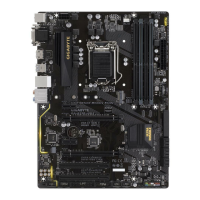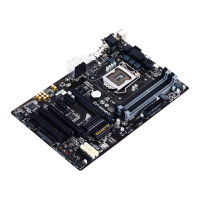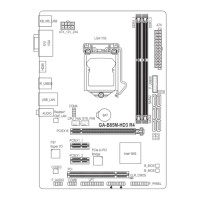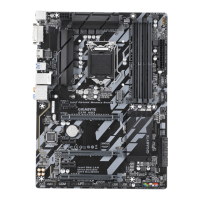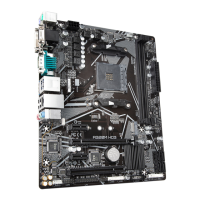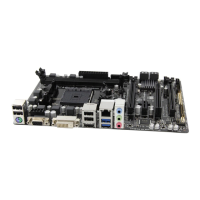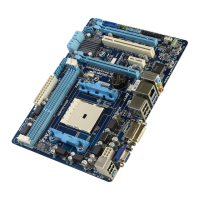A-2:InstallationinIntelRSTPremiumWithIntelOptaneSystemAccelerationmode
IftheSATAcontrollerhasbeenconguredinIntelRSTPremiumWithIntelOptaneSystemAccelerationmode,
please follow the steps below:
1. After system restarts, go to the BIOS Setup, make sure CSM Support under the BIOS menu is disabled.
2. Go to Peripherals\SATAAndRSTConguration and make sure Use RST Legacy OROM is disabled. If
you want to enable the Optane
™
memory installed in the M2M connector, set PCIe Storage Dev On Port 21
to RST Controlled; to enable the Optane
™
memory installed in the M2P connector, set PCIe Storage Dev
On Port 9 to RST Controlled.
3. Enter the operating system, launch the Intel
®
RapidStorageTechnologyutilityfromtheStartmenu,andthen
enable Intel
®
Optane
™
Memory on the Intel
®
Optane
™
Memory screen.
4. If you install more than one Optane
™
memory, please select which one you are going to use. Then select
which drive to be accelerated. Click Yes to continue. Follow the on-screen instructions to proceed. When
completed, restart the system.
5. Launch the Intel
®
Rapid Storage Technology utility from the Start menu and make sure the Intel
®
Optane
™
Memoryhasbeenenabled.Ifyouwanttoacceleratethesystemdrive,youcanselectspecicfolders,les,or
applications to accelerate using the Intel
®
Optane
™
Memory Pinning function. (The Intel
®
Optane
™
memory
used must have at least 32 GB capacity.)
• An Optane
™
memory cannot be used to accelerate an M.2 PCIe SSD.
• If more than one Optane
™
memory is installed, you can select only one of them to accelerate your
SATA-based boot drive. The other(s) can only be used as data drive(s).
• Do not abruptly remove the Optane
™
memory. Doing so will cause the operating system to stop
functioning correctly.
• If you want to change/remove the Optane
™
memory, you must disable it using the Intel
®
Rapid
StorageTechnologyorIntel(R)Optane
™
Memoryapplicationrst.
• After enabling the Optane
™
memory, the related BIOS settings will remain even after a BIOS update.
- 43 -
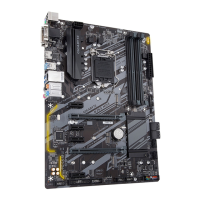
